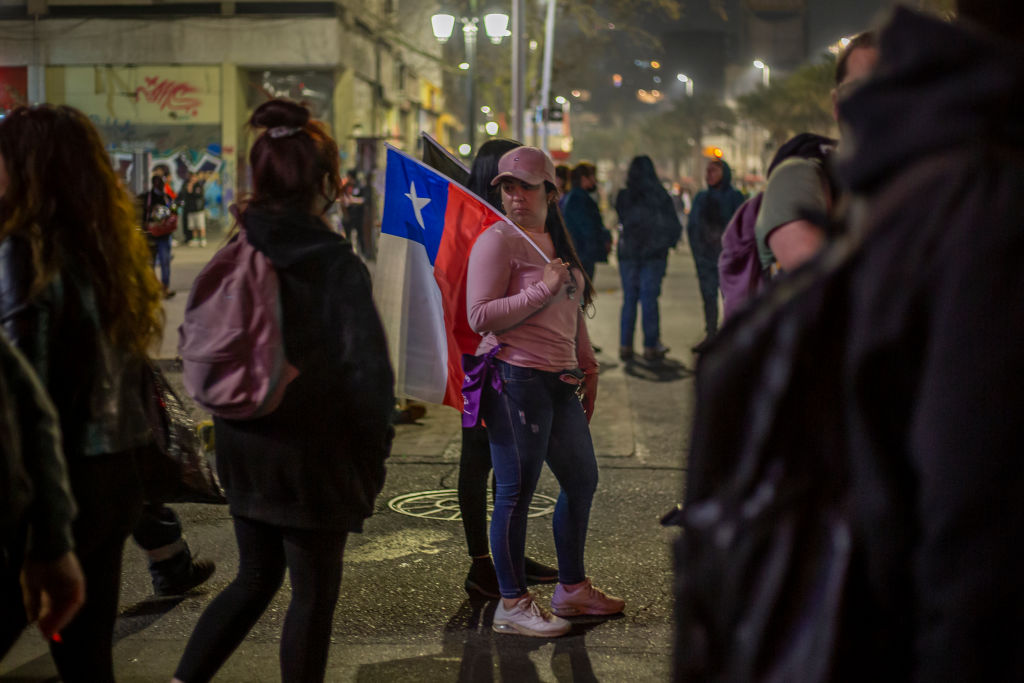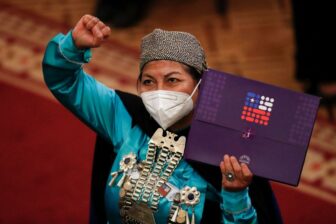The decisive victory for the Reject vote in the constitutional referendum—on a margin of 62% to 38%, with an unexpectedly high 85% turnout—can be summarized in a simple but powerful message: Chileans want a new constitution, not a new country.
And Chile now has an opportunity—though not a lot of time—to draft a new constitution that lays to rest the Pinochet-era text. It can now combine the popular demand for more social rights with the need to promote sustained economic growth that can fund a stronger safety net and improve living conditions.
The bad news
The bad news is that the country just wasted three years going down a constitution-writing path that led nowhere. Chileans overwhelmingly voted in October 2020 to replace the Pinochet-era constitution. In May 2021, anti-establishment and anti-political party sentiment—and ill-designed rules to promote civic participation—led to the election of a far-left assembly. The constitutional convention took a foundational course, choosing to discard Chilean constitutional history—and comparative constitutional experiences—in drafting the new text. Obsessed with writing a document that looked nothing like the old one, the convention composed a long and maximalist text that looked more like a policy platform. Part of the political class was apparently more concerned with retiring the Pinochet constitution than with what the new one would say. When campaigning before the referendum, President Gabriel Boric declared that anything was better than a constitution written by four generals.
Having missed the opportunity to write a constitution to bring the country together, the convention turned the exit referendum into a real race where many people felt that the nation’s future and the good aspects of the market-friendly economic development model that brought so much success over the past three decades were at risk.
A few weeks before the plebiscite it became clear that, regardless of the result, constitution writing in Chile was here to stay: Both sides promised to amend their respective texts in case of victory. The Reject vote now forces a rethinking of the constitution-writing process—but it will not end it.
The good news
The good news is that there is a simpler, faster, and more effective way to replace the Pinochet-era constitution. This time, with a text that enjoys democratic legitimacy, deepens democracy and puts the country back on the path of economic growth that can allow it to successfully respond to the challenges of today.
The big, immediate question is how the new constitution will be drafted. Starting this week, President Boric and the congressional leadership will attempt to work out a mutually acceptable mechanism that can also have popular support. Boric favors the election of a new constitutional assembly, but there is no guarantee that it would produce a better text than the one just rejected. Electing a new assembly would also require at least a six-month preparation period. If a new constitution convention were to be elected in March of 2023, even with a short three-month deadline to draft a text, the new referendum would take place only in late 2023. People want a new constitution, but they don’t want to wait forever to get it.
An alternative process would be for congress to appoint a committee of legislators or civic leaders to draft the new text. That would shorten the time needed to produce the new text. By March 2023, Chileans could be voting to ratify a more consensual—and ideally shorter—constitution. But for that alternative to work, the government will need to build consensus with opposition leaders, something that, so far, Boric has been unable to do.
The vote in the plebiscite made clear that people are not inclined to support a process that will again produce a long and maximalist text or to empower non-experts to give constitution writing a new try. People will support a compromise that combines a short period of time for the writing of the new text and assurances that the new constitution will build on the strengths and correct some of the shortcomings of the current text.
The electoral setback for President Boric gives the legislature—especially the Senate—an opportunity to shape the new process. Even if there is an election for a new constitutional convention, the rules of the game will be heavily tilted to favor professional politicians and experts.
Whichever option is chosen, constitution writing takes time and produces economic uncertainty. Chileans cannot afford going much longer without a constitution legitimized by a popular vote. So the political class needs to move fast.

Moving forward
Fortunately, the task ahead is clear. People want a constitution that can replace the Pinochet-era text, but not a new economic model. People do not want an extremely long text or a policy platform. They want a constitution that sets up an efficient system of balance of powers, promotes economic growth and competitive markets and provides a strong safety net protection. People want the recognition of Indigenous peoples, but not a cumbersome different legal system for the Indigenous nations. People want environmental protection, but not excessive innovation beyond what other OECD countries do. In short, they want a constitution that makes the system work for them, not one that seeks to create a new country.
What will that look like? The new constitution will have a long list of social rights. That will put pressure on fiscal spending, but the riots in October 2019 were all about insufficient pensions, access to education, better health, housing, transportation and other social service provision. The political elite must address the issues that triggered the discontent and almost toppled the Piñera administration in late 2019.
The new constitution might shy away from using the word “plurinational.” But Indigenous groups will be recognized—though not given veto power over development projects. Gender equality will also be part of the text, as will be the inclusion of traditionally marginalized minorities. It will be a “woke” text, but not a state-centric text.
The controversial principle of “subsidiary” enshrined in the 1980 constitution will be replaced by the more popular “social rule of law.” In Chilean terminology, that means that the private sector will no longer be given preference over the public sector to fulfill social needs. In short, it will make the economic model closer to a social-democratic welfare state than to the extreme neoliberal capitalism championed by the military dictatorship.
The new constitution will have a high fiscal price tag. But securing social and political stability is priceless.
The short-term challenges
Six months into his four-year term, 36-year-old President Gabriel Boric will have his hands full regardless of how the constitution-writing conundrum is worked out. A cabinet shuffle is already in the making. Some of his closest allies will have to go. As the ruling coalition comprised by the Communist Party and the Broad Front has suffered an electoral setback, Boric will need to bring to his administration more moderates from Socialist Party and Party for Democracy—two center-left parties that were the core of the former Bachelet (2006-2010, 2014-2018) and Lagos (2000-2006) administrations.
Boric will also need to become more moderate in the polices he advances to turn the electoral defeat into an opportunity. To be sure, Boric will feel pressure from the left not to abandon his radical campaign promises, but street mobilizations will have less appeal now that the people have spoken loud and clear at the ballot box. Popular demands for higher spending and a stronger safety net will continue to put pressure on fiscal spending. The government will need to move forward with a tax reform to raise additional revenues.
But there’s reason for optimism. If the government and the opposition can hear the popular message that Chile wants a new constitution, not a new country, the country will soon have a new constitution that deepens and improves the market-friendly democratic model that made its history of democratic and economic development over the past three decades the most successful in Latin America.
—
Navia is a contributing columnist for Americas Quarterly, professor of liberal studies at NYU and professor of political science at Diego Portales University in Chile






